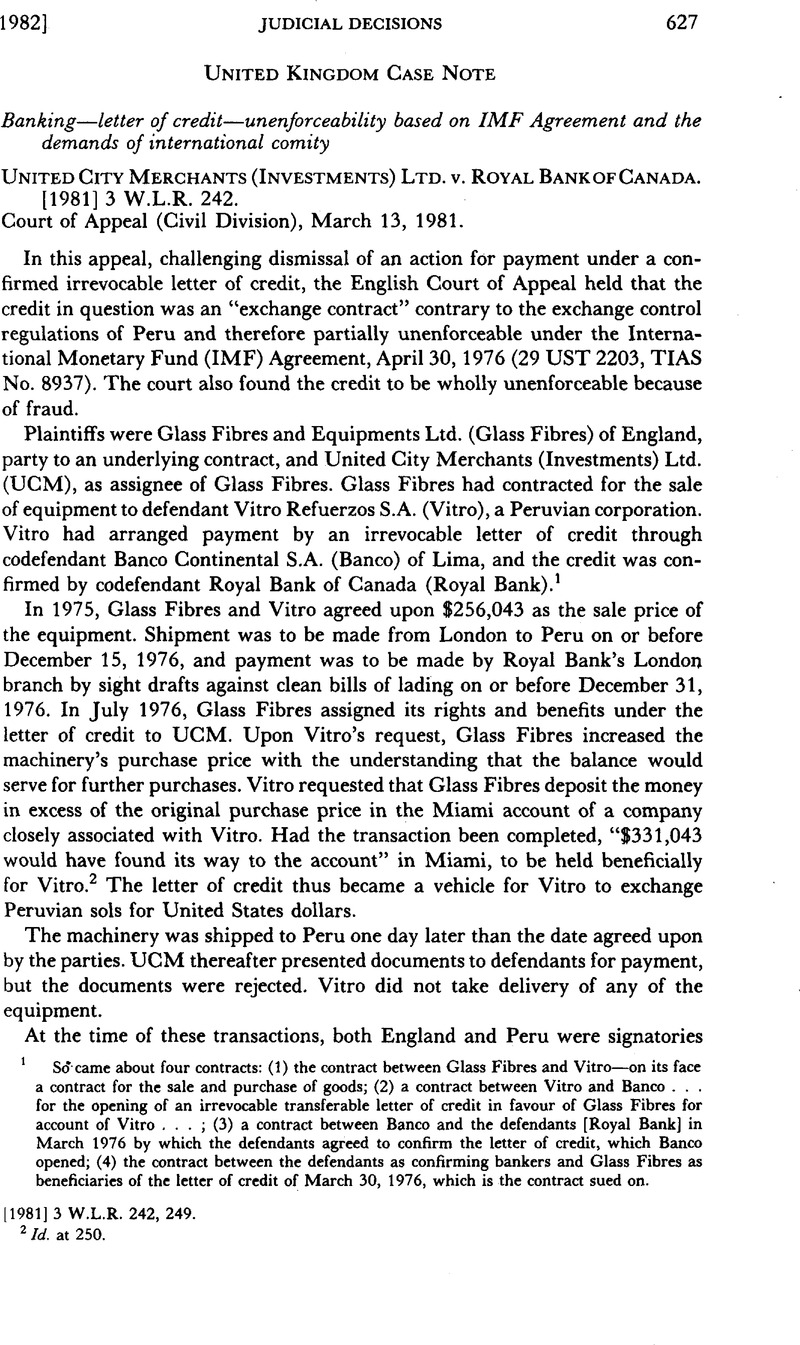No CrossRef data available.
Published online by Cambridge University Press: 27 February 2017

1 So came about four contracts: (1) the contract between Glass Fibres and Vitro—on its face a contract for the sale and purchase of goods; (2) a contract between Vitro and Banco . . . for the opening of an irrevocable transferable letter of credit in favour of Glass Fibres for account of Vitro . . . ; (3) a contract between Banco and the defendants [Royal Bank] in March 1976 by which the defendants agreed to confirm the letter of credit, which Banco opened; (4) the contract between the defendants as confirming bankers and Glass Fibres as beneficiaries of the letter of credit of March 30, 1976, which is the contract sued on.
[1981] 3 W.L.R. 242, 249.
2 Id. at 250.
3 Decree Law 18,275 of May 15, 1970, Arts. 1 and 18, quoted in 3 W.L.R. at 250.
4 Decree Law 18,891 of June 17, 1971, Art. 7, quoted in 3 W.L.R. at 250.
5 3 W.L.R. at 251 (quoting F. Mann, The Legal Aspect of Money 441 (3d ed. 1971)).
6 3 W.L.R. at 252.
7 Id. at 258.
8 Id. at 251–52.
9 Id. at 264.
[I]f beneficiaries go to others (as they have to) for the documents they present, it is important to all concerned that those documents should accord, not merely with the requirements of the credit but with the facts, and if they do not because of the intention of anyone concerned with them to deceive, I see good reason for the choice between two innocent parties putting the loss upon the beneficiary, not the bank or its customer.
Id. at 264–65.